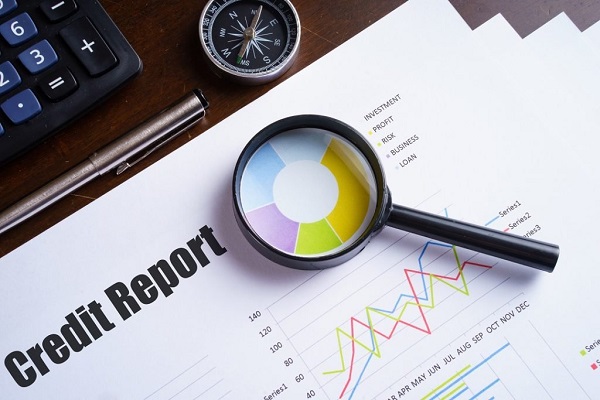Credit Reports Become Critical for Consumers in Post-COVID-19 World

With the six-month moratorium on reporting negative credit information to credit reference bureaus (CRBs) having ended on 1 October, it has become more important than ever that Kenyan consumers check their credit reports regularly during the next couple of months, especially if they took advantage of any payment holidays during the COVID-19 lockdown.
That’s the advice from Billy Owino, the country head of information provider TransUnion Kenya, who says the next 60 days are going to be critical in how Kenyan consumers manage their credit health, as lenders use this period to assess how consumers and businesses are making loan repayments on their facilities.
“As lenders resume reporting to the bureaus, you must ensure that the information being reported on you or your business is correct to ensure that you don’t run into issues down the line. Checking your credit report will also enable you to identify any fraudulent loans that could have been taken using your identity, and to take steps to remedy this,” said Owino.
A credit report is one of the most powerful financial tools available to consumers – but only around 70,000 Kenyans access their credit report every year, out of 10 million credit-active consumers.
“While many Kenyan consumers know what credit is, far fewer understand how it affects their finances in the long term. That’s why the first step on the journey to financial health starts with reading and understanding your credit report,” said Owino.
What is a credit report?
A credit report is a record of your credit history and payment behaviour. It includes:
- Personal information: Your name, ID, address, marital status, employment information and contact details.
- Account information: A list of every bank and business that’s lent you money; your credit limits, loan amounts and how you are managing them in terms of payment. This includes accounts where you have made payments on time, late payments or no payments at all to name a few.
- Current financial information: Your level of debt, and how many times you’ve applied for credit recently.
- Enquiries: Who has viewed your credit profile and for what purpose.
What’s the difference between a credit report and a credit score?
A credit report is a document that contains information about your financial history and payment behaviour. A credit score uses the information in your credit report to create a three-digit number that helps lenders evaluate how safe or risky you are as a customer. “Remember, each lender will have their own criteria on how to assess your risk for your credit application,” says Owino.
Why is it important to have a good credit score?
Having a good credit score might help you to get a lower interest rate on credit products such as a house or vehicle loan. A credit report with negative listings, such as defaults and judgments, or too many enquiries for loans or credit over a short period of time, could result in a low credit score. This could mean you may pay a higher interest rate, or even be denied credit.
What are defaults?
A default is when you miss payments on an account for 3 months or longer. In terms of the Credit Reference Bureau Regulations 2020, a credit provider must give you at least two weeks’ (if the facility’s outstanding repayment period is less than one month) or a month’s written notice that your default will be reported to the credit bureau. This information stays on your credit report for five years, or until you bring the account up to date.
Please note that every month that you miss payment, lenders share the information with the credit bureau. This does not only happen once you’ve defaulted.
What affects my credit score, and how can I maintain credit health?
The biggest influence on your credit score is how you manage your accounts, and whether you pay your accounts on time. To maintain your credit health, do the following:
- Make on-time payments for your loans wherever possible. Try to resume your repayments, even if only partial payments.
- Talk to your lender(s) as soon as possible if you can’t make your repayments. Lenders are generally willing to listen and work out an arrangement with you. Keeping quiet or avoiding your lender does not help.
Who views my credit report, and why?
When you apply for credit – like a personal loan, a mobile loan, a car loan, mortgage or a new credit card – banks and lenders will access your credit report as one of the factors to assess if you’re suitable for credit. Other companies that may view your profile include insurance companies, landlords, trade credit providers, leasing companies and even employers. But they need to get your permission first.
How do I access my credit report?
You can get your free credit report once every 12 months from TransUnion. Just download TransUnion’s Nipashe which is available on Google Play Store or simply SMS your full name to 21272 and follow the instructions.
Who do I speak to if I want to dispute items listed on my credit report?
Consumers who regularly check their credit report are in a better position to make sure their report accurately reflects their credit history and behaviour. If you find a mistake, such as payments marked late when you paid on time or negative information that’s out of date, lodging a dispute is easy. Simply contact either TransUnion on +254 768 262 495, info@transunion.com or the credit bureau you got your credit report from. Provide as much supporting documentation as possible, like receipts or evidence of payment. TransUnion will investigate and respond within the legislated 30 working day period.
Have anything to add to this article? Like and follow us on Facebook and Twitter to ensure you don’t miss out on future updates from us.